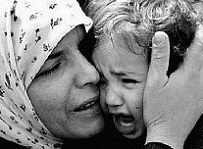 WHO’s Iraq Birth Defect Study Omits Causation
WHO’s Iraq Birth Defect Study Omits Causation

A long-awaited study on congenital birth defects by the World Health Organization (WHO) and the Ministry of Health (MOH) in Iraq is expected to be very extensive in nature. According to WHO, 10,800 households were selected as a sample size for the study, which was scheduled to be released early this year but has not yet been made public. Many scientists and experts have started questioning the time delay in publishing the study, but there is another aspect that is a cause for concern among some health experts. The report will not examine the link between the prevalence of birth defects and use of depleted uranium (DU) munitions used during the war and occupation in Iraq, according to WHO. A by-product of the uranium enrichment process, DU is prized by the military for its use in ammunition that can punch through walls and armoured tanks. The main problem, experts say, is that DU munitions vaporise on contact, generating dust that is easily inhaled into the lungs. The WHO study will also not consider pollutants such as lead and mercury as factors or variables, Syed Jaffar Hussain, representative and head of mission for the WHO in Iraq, told IPS.
Abel Bult-Ito: Nothing depleted about 'depleted uranium'
Gerry Georgatos: Victims of war - Iraqi children and families - Depleted uranium and trauma




